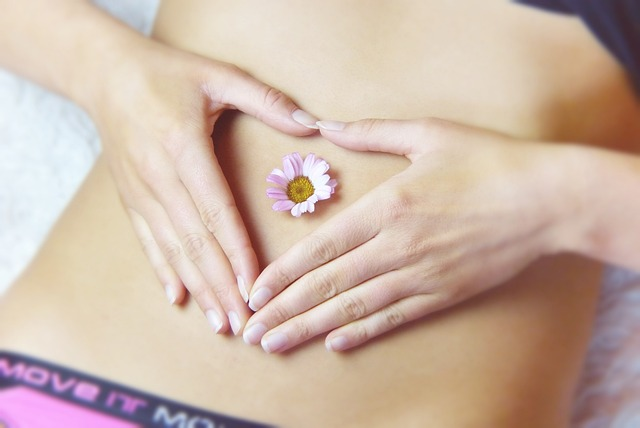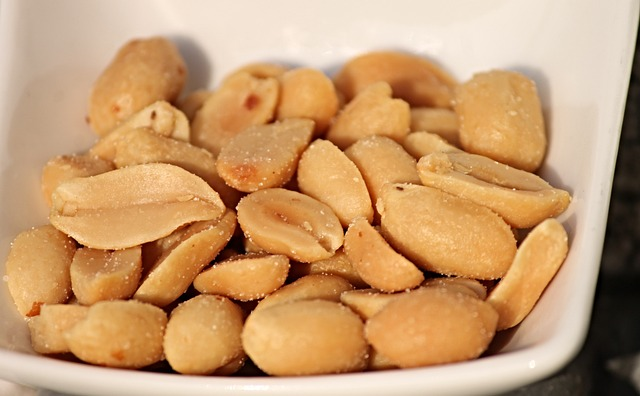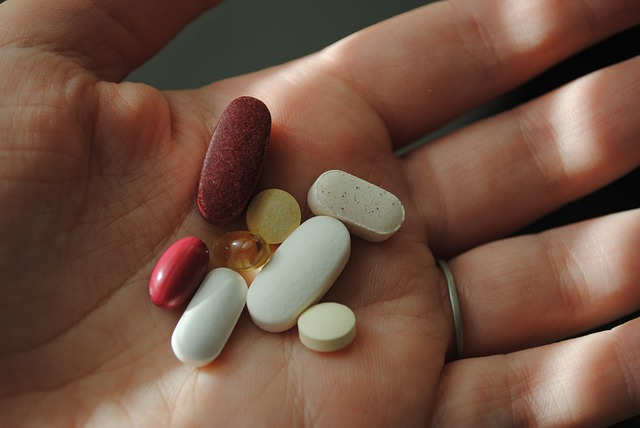A Step-by-Step Guide to Healing Gut Naturally in 2024
Imagine a world where your gut health dictates your overall well-being, mood, and immune system. Sounds far-fetched? Think again! The key to unlocking optimal health lies right within your digestive tract. In this blog post, we’ll guide you through a step-by-step plan to heal your gut naturally in 2024. Get ready to embark on a transformative journey towards better health and happiness!
Key Takeaways
-
Take control of your gut health for improved immunity, mental health and overall wellness!
-
Fuel your body with anti-inflammatory foods & beneficial prebiotic/probiotic foods.
-
Manage stress, exercise regularly & stay hydrated to improve gut health + seek personalized nutrition advice from a professional.
Understanding the Importance of Gut Health

A healthy gut is the foundation of overall wellness, affecting everything from immunity to mental health. These functions are vital: proper digestion, nutrient absorption, and maintaining a balanced gut microbiota. But why should you care about your gut health? We will delve into the fascinating realm of gut bacteria and digestive health.
Recent studies have uncovered the intricate connections between the gut and various aspects of our health, including immunity, mood, and even the risk of developing certain autoimmune diseases. A diverse gut microbiome populated with beneficial bacteria is vital for supporting not only digestive health but also our mental well-being. The good news is that food can be a powerful ally in promoting optimal gut health, and making healthy dietary choices can go a long way in supporting your gut naturally.
However, it’s not solely about your diet; your lifestyle significantly influences your gut health as well. Improving gut and mental health involves managing stress levels, taking supplements, detoxifying and gut cleanse. Hence, take the reins of your gut health to pave the way for a healthier, happier you!
Identifying Symptoms of Poor Gut Health

Recognizing the signs of an unhealthy gut is a crucial first step in your journey to gut healing. Common symptoms include:
-
Upset stomach
-
Bloating
-
Gas
-
Gut pains
-
Irregular bowel movements
-
Parasites
-
Yeast infections
-
Skin issues
-
Mood changes
Recognizing these symptoms helps identify the necessary actions for improving gut function.
An unhealthy diet, poor lifestyle choices, stress, lack of sleep, food intolerances, and exposure to toxins can all affect gut health. These factors should be taken into consideration if we want to maintain a healthy digestive system. Unhealthy gut conditions might include leaky gut syndrome, which is characterized by:
-
Intestinal permeability (‘leaky gut’)
-
Yeast overgrowth
-
SIBO (small intestinal bacterial overgrowth)
-
Gut inflammation
-
Irritable bowel syndrome
All of these can impact your overall health and well-being, making it crucial to address these issues.
Reducing inflammatory foods and activities is key for naturally healing your gut, as leaky gut can both trigger and be triggered by inflammation. Recognizing the symptoms and understanding the root causes of poor gut health are the initial steps towards enhancing gut function.
The Role of Diet in Gut Healing

Diet plays a significant role in gut healing and supporting the immune system, with anti-inflammatory foods, prebiotic and probiotic foods, and avoiding trigger foods all contributing to a healthier gut.
We will delve into various dietary approaches that naturally support gut health.
Anti-Inflammatory Foods
Incorporating anti-inflammatory foods into your diet can help reduce gut inflammation, improve digestive health, and may even be beneficial for those with inflammatory bowel disease. Some examples of anti-inflammatory foods include:
-
Fruits
-
Vegetables
-
Whole grains
-
Leafy vegetables
-
Wild fatty fish
-
Bone broth
These foods are not only delicious, but also fuel your body with the nutrients it needs to support gut health.
Some other anti-inflammatory foods to consider adding to your diet include:
-
Dark leafy greens
-
Berries
-
Garlic
-
Ginger
-
Turmeric
Focusing on these nutrient-dense foods, as opposed to processed foods, fosters an environment conducive to gut healing and inflammation reduction.
Beneficial Prebiotic and Probiotic Foods
Prebiotic and probiotic foods are essential for gut healing, as they replenish and nurture the beneficial bacteria in the gut. Fermented foods and fiber-rich plants are some of the most beneficial prebiotic and probiotic foods that can support a healthy gut microbiome and promote proper digestion.
To improve your gut health, consider adding grains, brown or wild rice, and legumes to your diet for a prebiotic boost. Additionally, fermented pickles, sauerkraut, miso, yogurt, kefir, kimchi, and natural soy sauce are all delicious and nutritious probiotic food options.
Incorporating these beneficial foods into your diet fosters a healthy gut microbiome, promotes optimal digestion, and supports your digestive tract.
Foods to Avoid
While certain foods can help support gut health, others can negatively impact it. To ensure a gut-healthy diet, it’s essential to avoid processed sugars, gluten, and other inflammatory foods. Steering clear of trigger foods, like wheat and gluten-containing foods, is a great way to start your gut healing journey.
An elimination diet can help you identify any foods that may be causing inflammation or irritation in your gut, giving you the opportunity to eliminate them for a period of time. Eliminating these harmful foods and focusing on nutrient-dense, gut-friendly options allows for a dietary plan that facilitates your gut healing journey.
Lifestyle Factors Affecting Gut Health

Beyond diet, other lifestyle factors play a significant role in maintaining a healthy gut. Stress management, exercise, and hydration are all crucial components of a gut-healthy lifestyle. We’ll examine how these factors influence your gut health and overall well-being.
Chronic stress has been linked to poor gut health due to the gut-brain axis, which connects the gut and the brain. Practicing stress reduction techniques such as:
-
Breathing exercises
-
Yoga
-
Meditation
-
Prayer
-
Journaling
Can help manage your gut health and enhance your overall well-being. Remember, a calm mind leads to a healthy gut!
Exercise is an essential part of staying healthy. To support this, proper hydration is also needed for a healthy gut. Regular physical activity helps improve gut motility, decreasing the risk of inflammation. Aim for at least 30 minutes of moderate-intensity exercise daily for optimal digestive health. Additionally, proper hydration helps the body flush out toxins, with the Mayo Clinic recommending 15 cups of fluids for men and 11 cups for women daily.
Integrating these lifestyle elements into your daily routine bolsters your gut health and overall well-being.
Natural Remedies for Gut Healing

In addition to dietary and lifestyle changes, natural remedies can also support gut healing. Herbal supplements, traditional Chinese medicine, and other holistic approaches can help nurture and restore gut health. We’ll examine some of these natural remedies that can facilitate your journey to heal your gut naturally.
Traditional Chinese Medicine (TCM) provides essential body fluids necessary for sustaining healthy organ tissue, blood, enzymes, hormones, and overall body/mind well-being. Incorporating TCM practices into your gut healing plan can help support digestive health and overall wellness.
Another approach to support gut healing is the use of digestive enzymes and supplements. Dr. Michael Ruscio recommends taking digestive enzymes that target carbohydrates, fats, proteins, and various types of sugar, especially lactose, and/or an HCl supplement at each meal. These supplements can help improve digestion and nutrient absorption, further promoting gut health.
The Importance of Personalized Nutrition and Professional Guidance

When it comes to gut healing, a one-size-fits-all approach doesn’t work. Creating a tailored plan that addresses your individual needs and challenges necessitates personalized nutrition and professional guidance from a dietitian or functional medicine doctor.
Working with a registered dietitian can be especially beneficial when following an elimination diet. They can:
-
Guide you in selecting the right foods to eliminate
-
Ensure you receive all the essential nutrients during the process
-
Collaborate with you to devise a personalized gut healing plan that is uniquely tailored to your needs
Regular check-ins with a healthcare professional can further empower you to stay on track and achieve your gut healing goals. Monitoring your progress, making necessary adjustments, and leveraging professional support enhances your chances of achieving long-term success in your gut healing journey.
Monitoring Progress and Adjusting Your Plan

Healing your gut is a journey that requires persistence, patience, and regular monitoring of your progress. On this transformative path, tracking your progress, making necessary adjustments, and laying a foundation for long-term gut health is vital.
Regular check-ins with a healthcare professional can help you:
-
Stay accountable
-
Troubleshoot any issues
-
Celebrate your successes
-
Provide guidance on adjusting your plan as needed to ensure continued success on your gut healing journey.
Remember, every individual’s gut healing journey will be unique, and progress may not always be linear. Be patient with yourself, trust the process, and remember that small, consistent steps can lead to significant improvements in your gut health and overall well-being.
Summary
In conclusion, healing your gut naturally is a multifaceted journey that encompasses diet, lifestyle factors, natural remedies, personalized nutrition, and professional guidance. By following this step-by-step guide, you can embark on a transformative path towards better gut health and overall well-being. Remember, the key to unlocking optimal health lies within your digestive tract, and your journey to a healthier, happier you starts today!
Frequently Asked Questions
What is the quickest way to heal your gut?
To heal your gut quickly, reduce processed and high sugar/fat foods from your diet, incorporate probiotics, prebiotics, and fermented foods into your meals, drink plenty of water and green juices, and remove inflammatory foods.
Add in exercise and collagen-rich foods for additional support.
How long does it take to heal gut?
It can take up to 6 months of healthy habits like diet, exercise, sleep and stress management to heal your gut, but it’s a lifelong journey if you want to maintain a healthy microbiome.
Making small changes to your lifestyle can have a big impact on your gut health. Eating a balanced diet, exercising regularly, getting enough sleep, and managing stress are all important steps to take. Taking the time to focus on your gut health can help you feel better and live a healthier life.
What are the 4 stages of gut healing?
Restoring a healthy gut-immune barrier involves removing mucosal irritants, replacing agents for digestive support, reinoculating with friendly bacteria and foods to help them grow, and repairing the mucosal lining - all part of a four-step process.
This four-step process is essential for restoring a healthy gut-immune barrier. The first step is to remove any mucosal irritants that may be present. This can be done by avoiding certain foods, such as dairy, gluten, and processed foods, as well as avoiding environmental toxins.
The second step is to replace any existing ones.
What are the signs of an unhealthy gut?
Signs of an unhealthy gut include having an upset stomach, fatigue, trouble sleeping, food intolerances, sugar cravings, weight gain or loss, and skin irritations.
What is the connection between gut health and overall well-being?
Gut health is essential for our overall well-being, as it helps with digestion, absorption of nutrients, immunity, and mood.
A balanced gut microbiota is crucial for maintaining good health.
